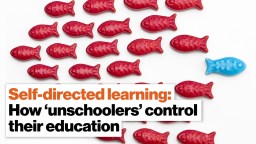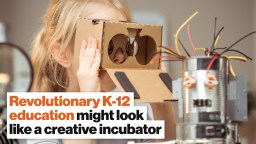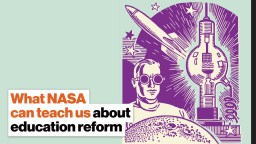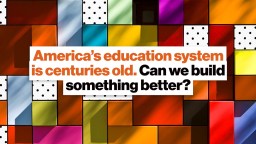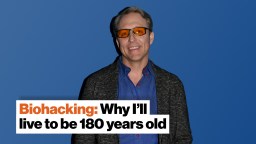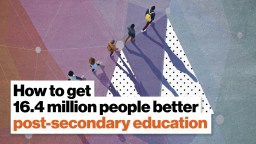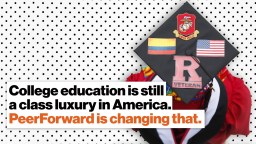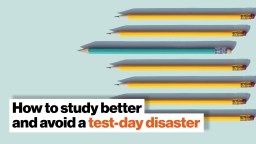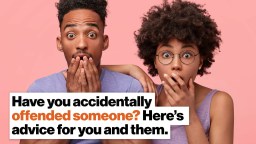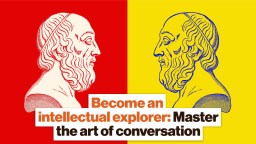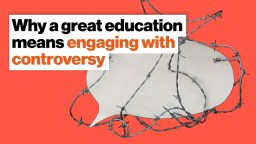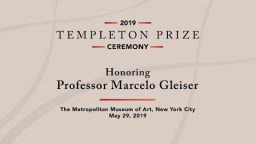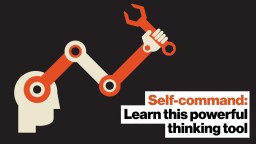learning
The factory model of education is outdated, so what’s next?
▸
8 min
—
with
Countless top-down reforms haven’t improved the U.S. education system; can community-based education make a difference?
What can a learning space achieve when it’s optimized for both student and parent expression?
▸
8 min
—
with
Girls tend to have more advanced language skills than boys, the researchers state.
If teachers weren’t taught to fear failure, could they see greater success in the mission of education?
▸
7 min
—
with
The Lumina Foundation lays out steps for increasing access to quality post-secondary education credentials.
▸
3 min
—
with
From computer hacking to biohacking, Dave Asprey has embarked on a quest to reverse the aging process.
▸
4 min
—
with
Lumina Foundation wants to help 16.4 million people get a quality credential by 2025, and they’re looking for entrepreneurs with the vision to help realize that goal.
▸
2 min
—
with
Like it or not, most jobs still require some kind of secondary degree. PeerForward is working with low-income communities to ensure that students aren’t excluded based on their zip code.
▸
5 min
—
with
Want to learn better? Here’s a lesson from cognitive psychology.
▸
3 min
—
with
Here’s what to say in an era where many people are too afraid to say anything.
▸
4 min
—
with
Want to be smarter than you were yesterday? Learn to have better conversations using these 3 design principles.
▸
5 min
—
with
Brain plasticity. Mindful superpowers. Pokémon invading our grey matter. Scientists have only begun to learn about the human brain.
It’s hard not to conclude that if you act like a child, maybe you’ll learn as effectively as a child, too…
Jonathan Zimmerman explains why teachers should invite, not censor, tough classroom debates.
▸
6 min
—
with
You can be born with good genes and study hard and still not meet your potential. Your environment has a lot to do with how smart you are.
Stop prescribing advice and start helping people come up with their own solutions.
Templeton Prize winner Marcelo Gleiser on knowledge, the endless frontier.
▸
with
When should you censor yourself, and when should you speak up? Emily Chamlee-Wright explains moral philosopher Adam Smith’s ‘impartial spectator’.
▸
7 min
—
with
Rote memorization doesn’t cut it for theoretical physicist Michio Kaku. Here’s why.
▸
4 min
—
with
A sobering look at the prospects for kids not wealthy enough to fail upward.
Nontraditional education options are on the rise.
Our clever human hands may soon be outdone.
Being bilingual has cultural, social, and cognitive benefits — so why are schools dropping language courses?
Smart people are not afraid to say “I don’t know.”
Few could match the famous physicist in his ability to communicate difficult-to-understand concepts in a simple and warm fashion.
Tips on how to intensify engagement with what you’re reading.
▸
2 min
—
with
Dividing students according to their abilities has little effect on learning and further entrenches socio-economic inequality. Is it time to stop?
Brain scans reveal why insomnia sufferers can’t get sleep.
